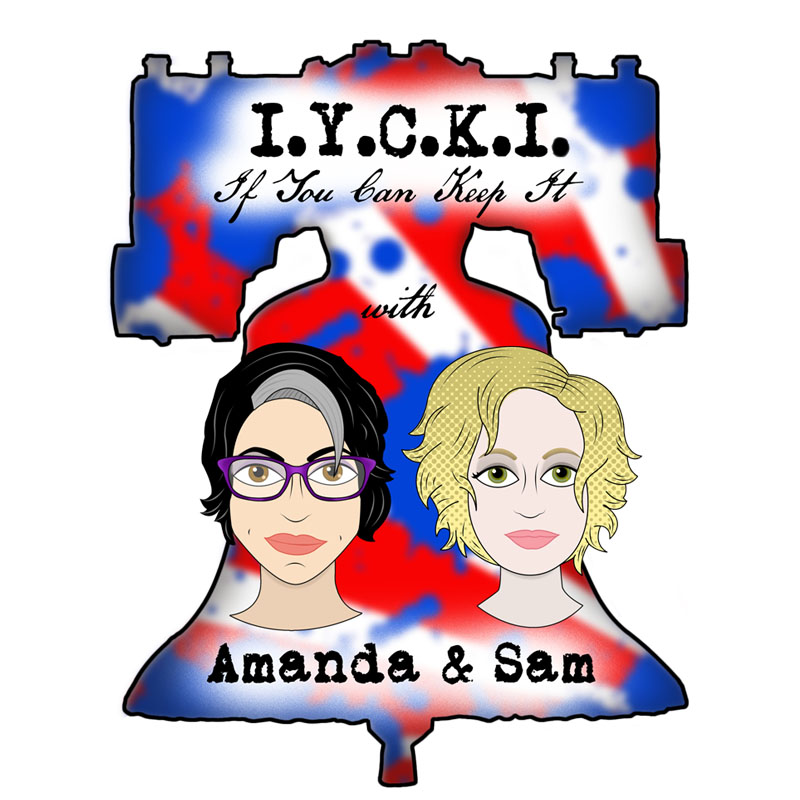(Episode 13) 1st Amd. (Part 2/3): Porn, Profanity, and Protected Speech
Happy Holidays, and welcome back! We continue our discussion of the First Amendment (part 2 of 3) with the speech and press clauses: "Congress shall make no law . . . abridging the freedom of speech, or of the press . . ."
In Episode 13, we discuss perhaps the most well-known part of the most well-known amendment. You've probably heard someone say "It's a free country!" and/or "I can say whatever I want. Freedom of speech, man!" or something similar. Madison suggested to Congress that the Constitution needed to be amended to include the right of the people "to speak, to write, or to publish their sentiments; and the freedom of the press, as one of the great bulwarks of liberty[.]" What does that really mean?
How powerful is the freedom of speech? What, exactly, is "speech?" And how does the press fit into all this, especially in an era where the phrase "fake news" gets thrown around pretty frequently? And why are we going to talk about porn?
Very generally, the freedom of speech means that the government isn't allowed to punish a person or organization based on what they say or write, except in exceptional circumstances. Freedom of the press is very similar. But, as with most topics which fall within the Constitution, the answer is almost always "it depends."
In our opinion, the biggest takeaway from this episode is this: you usually have the right to think, speak, and express yourself as you wish, but that doesn't mean you're free from all consequences of your actions. And if you're the listener rather than the speaker, it's important to remember that freedom of speech necessarily means that sometimes, you're going to be offended by what you hear. But that's how the free exchange and exploration of ideas works.
Some of our other favorite sources:
In Episode 13, we discuss perhaps the most well-known part of the most well-known amendment. You've probably heard someone say "It's a free country!" and/or "I can say whatever I want. Freedom of speech, man!" or something similar. Madison suggested to Congress that the Constitution needed to be amended to include the right of the people "to speak, to write, or to publish their sentiments; and the freedom of the press, as one of the great bulwarks of liberty[.]" What does that really mean?
How powerful is the freedom of speech? What, exactly, is "speech?" And how does the press fit into all this, especially in an era where the phrase "fake news" gets thrown around pretty frequently? And why are we going to talk about porn?
Very generally, the freedom of speech means that the government isn't allowed to punish a person or organization based on what they say or write, except in exceptional circumstances. Freedom of the press is very similar. But, as with most topics which fall within the Constitution, the answer is almost always "it depends."
In our opinion, the biggest takeaway from this episode is this: you usually have the right to think, speak, and express yourself as you wish, but that doesn't mean you're free from all consequences of your actions. And if you're the listener rather than the speaker, it's important to remember that freedom of speech necessarily means that sometimes, you're going to be offended by what you hear. But that's how the free exchange and exploration of ideas works.
Some of our other favorite sources:
- An Introduction to the Free Speech Clause from UMKC;
- Freedom of Speech and the Press by Geoffrey R. Stone and Eugene Volokh;
- Fixing Free Speech by Geoffrey R. Stone;
- Why it's okay to wear a jacket with "Fuck the Draft" emblazoned on it;
- A History of the Definition of Obscenity under the First Amendment;
- Why public figures are treated differently.
And some modern-day examples which are good ways to discuss freedom of speech and the press:
- To continue with the Masterpiece Cakeshop case, check out the...uh...interesting freedom of speech arguments at pages 13-17 of the oral argument transcript;
- Remember when that media guy sued John Oliver for making fun of him on Oliver's show Last Week Tonight? Read at least the Table of Contents of the brief submitted by the ACLU of Western Virginia in support of John Oliver. It's a great summary of freedom of the press;
- And what ever happened to Kim Davis, the Kentucky clerk who refused to issue marriage licenses to same-sex couples?

Comments
Post a Comment